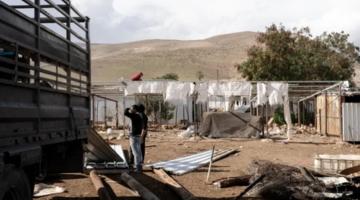This book is dedicated to the Black mad and the mad Black everywhere.
“The project works against the stagnancy of thought regarding racism and ableism, and asks folks to rethink what radicality looks like.”
In this series, we ask acclaimed authors to answer five questions about their book. This week’s featured author is Therí Pickens. Pickens is Associate Professor of English at Bates College. Her book is Black Madness :: Mad Blackness.
Roberto Sirvent: How can your book help BAR readers understand the current political and social climate?
Therí Pickens: Black Madness :: Mad Blackness offers a set of theoretical ruminations about how we understand race & disability broadly, Blackness & madness in particular. I realize that calling it theoretical insinuates that it has limited practical application, but I find that unpacking the structures of our thought makes our social and political commitments more clear and, often, more firmly situated. Against the understandably reactionary current social and political climate, this book meditates on how we contextualize not just the social locations of Blackness and madness, but the structures (cultural, institutional, social) that make them abject. For instance, if we examine news stories where Blackness and madness intersect on Black bodies, do we have the requisite knowledge of Black madness to understand what is happening? When the news cycle absolves white murderers for killing Black people by charging them with madness, can we ethically allow for that formula of storytelling without questioning a commitment to the concept of “humanity”?
What do you hope activists and community organizers will take away from reading your book?
In some ways, that is for them to decide. Every movement requires different strategies and, despite our shrinking globalized world, activism is still overwhelmingly local. I’m thinking of Hunters Point in San Francisco, CA; Flint, MI; and, even where I live, Lewiston, ME. My book is not a manual for these concerns of environmental racism, social injustice, and community coalition building. What it does provide is a set of new options from which to create strategies for dealing with these issues. We make the mistake of considering activism spontaneous at our own peril. Effective social change is thoughtful and considered. Just as there were specific reasons or sitting at lunch counters, disrupting public space, boycotting buses, there must be specific reasons for our current actions. I hope that my book allows folks to incorporate the multiple and varied experiences of Blackness into social justice, keeping in mind that including those experiences – like those of disability, different genders, class positions, sizes, et cetera – means no less than an upheaval of current paradigms.
We know readers will learn a lot from your book, but what do you hope readers will un-learn? In other words, is there a particular ideology you’re hoping to dismantle?
Black Madness :: Mad Blackness works against the stagnancy of thought regarding racism and ableism.Recently, a lot of scholars have been probing this intersection to better understand where it shows up and how it works. I want to expand the possibilities for how we currently understand the two in conversation, hoping folks “unlearn” some of the neatness with which we tell these stories. The book also asks folks to rethink what radicality looks like. Too often, we conceptualize Black or racialized radicality in ableist terms – narratives about wholeness, wellness, and overcoming. Those narratives do not free everyone and, for those for whom those ideas are freeing, their freedom is bought with the price of another (usually disabled) person. Last, this book seeks to question the paradigms we have for writing about these two topics. I make use of inventive footnotes, and refuse to conclude traditionally. I purpose to ask people, using the words here, what do you have to unlearn in your writing to write accurately about Blackness and madness?
Who are the intellectual heroes that inspire your work?
This is not a question I think I can answer without leaving out names. I am grateful to all the folks with whom I’m in conversation, so that includes my entire bibliography. Then, there are the folks who contributed directly to the completion of the project who are listed in the acknowledgements. Finally, there are the folks to whom the project is dedicated: the Black mad and the mad Black everywhere.
In what way does your book help us imagine new worlds?
I am not sure that it does. I would not put the onus on my work to achieve a kind of radical or hopeful release. In fact, I find myself frustrated that the desire tends to be for scholarship about Blackness and disability having to imagine something new or imagine a futurity. The creative writers-theorists about which I write – Octavia E. Butler, Nalo Hopkinson, Tananarive Due, Mat Johnson – definitely imagine new worlds (ones that do not necessarily index radicality or remain hopeful about the future). This book comes alongside them to understand what their creative work might mean. In terms of thinking anew, Black Madness :: Mad Blackness leaves open the possibility of sitting with a way of thinking that is in process and unwieldy. So, it does imagine a new set of theories from which we might embark upon the world in which we currently live or escape it.
Roberto Sirvent is Professor of Political and Social Ethics at Hope International University in Fullerton, CA. He also serves as the Outreach and Mentoring Coordinator for the Political Theology Network. He is co-author, with fellow BAR contributor Danny Haiphong, of the new book, American Exceptionalism and American Innocence: A People’s History of Fake News—From the Revolutionary War to the War on Terror.
COMMENTS?
Please join the conversation on Black Agenda Report's Facebook page at http://facebook.com/blackagendareport
Or, you can comment by emailing us at comments@blackagendareport.com



















